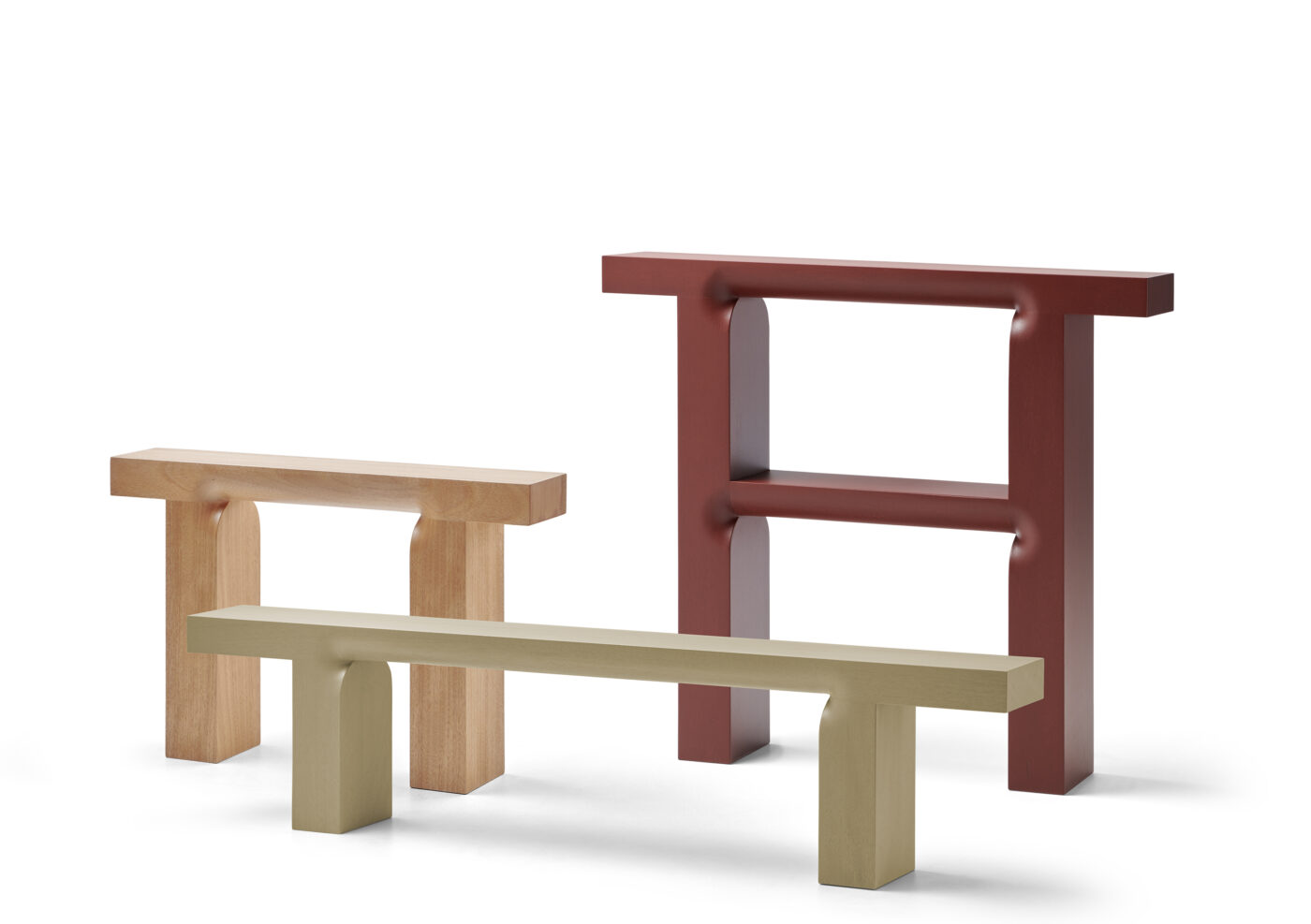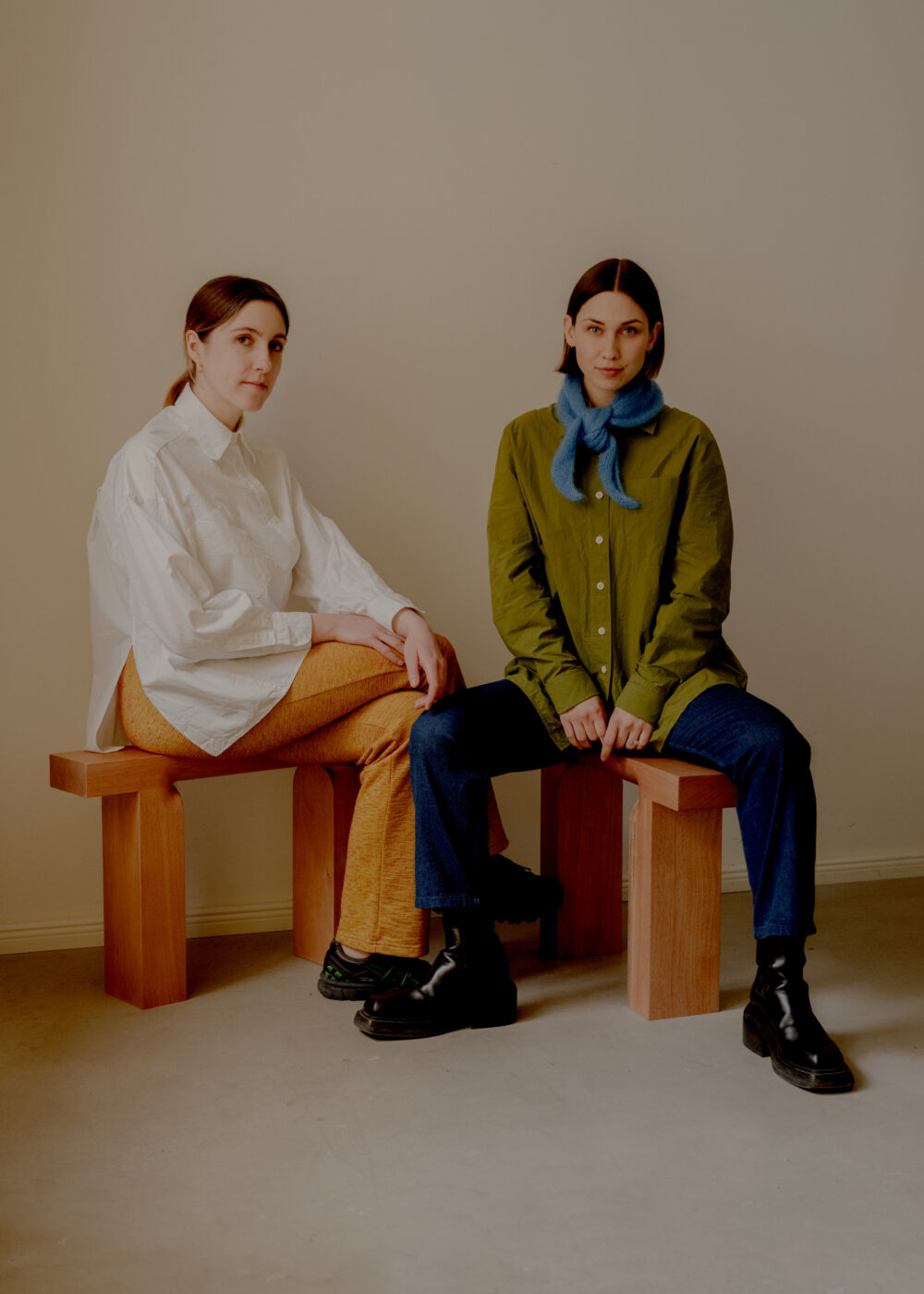
2023 / MC23 — OTO
BY STUDIO Œ
The interview
Konstantin Grcic: The briefing of your project was rather open. I asked you to think about furniture that can be used in the periphery of chairs. The challenge was to give a specific response to a non-specific problem. You have done this in an exemplary manner. What were the main thoughts that led you in the direction you have taken?
Studio Œ: During the design process, we thought about constructive elements that people use to repurpose for their daily routines – like stairs that become places to sit and wall ledges turning into displays for flower pots. We aimed to create a mobile extension of architecture that would seamlessly blend into the living space. OTO invites to define its use according to individual needs. Like a railing it nestles along furniture and walls and complements them with additional shelving and seating space. The balance between the strong, defined lines and the soft, organic curves of OTO creates a sense of calmness and serenity that reminds us of the supportive beams in a timber-framed house that hold everything together.
KG: I like the thought of “mobile extension of architecture”. With OTO you expand the idea of furniture beyond the commonly known typologies (chairs, tables etc.). It is difficult to put a specific label on your pieces. The pieces themselves are very simple. They follow the basic logic of what kids would do with a set of building bricks: two vertical pieces and a horizontal piece on top: TT. There is a special detail that is very Mattiazzi. Please describe this particular detail – how it is made and what it does to OTO?
Œ: We were intrigued by the knowledge and skills of the people working at Mattiazzi. Curious about the different steps of the woodworking process we wanted to make them visible in OTO. From the first cutting of the tree into beams, through the storage of the wood, to the CNC processing and the manual sanding of the piece at the end. The engineered craft is applied just enough to give OTO its character and emphasize the soft strength of the wood. A custom-made milling tool inscribes the generous rounding of the inner edges into the beams like a signature of Mattiazzi.
KG: OTO is a collection of four slightly different models. They all follow the same construction principle, but differ in their proportions. Can you say something about the various characters… What use do you assign to each of them? I guess that one could also imagine using two of the same kind, or three or four different ones?
Œ: Although we don’t want to limit their potential functions, the different heights and lengths of the OTO characters invite for different uses. Picture arriving home, sitting down briefly on the lowest OTO to take off your shoes, while dropping the keys on the highest one that serves as a console on the other side of the narrow hallway. Entering the living room, the smallest OTO can accompany your sofa or provide an additional seating option at the head of the dining table. Meanwhile, a free-standing two-level OTO can divide your room in separate living areas. What all four models have in common is that they are quite narrow – never standing in the way but always on the spot.

